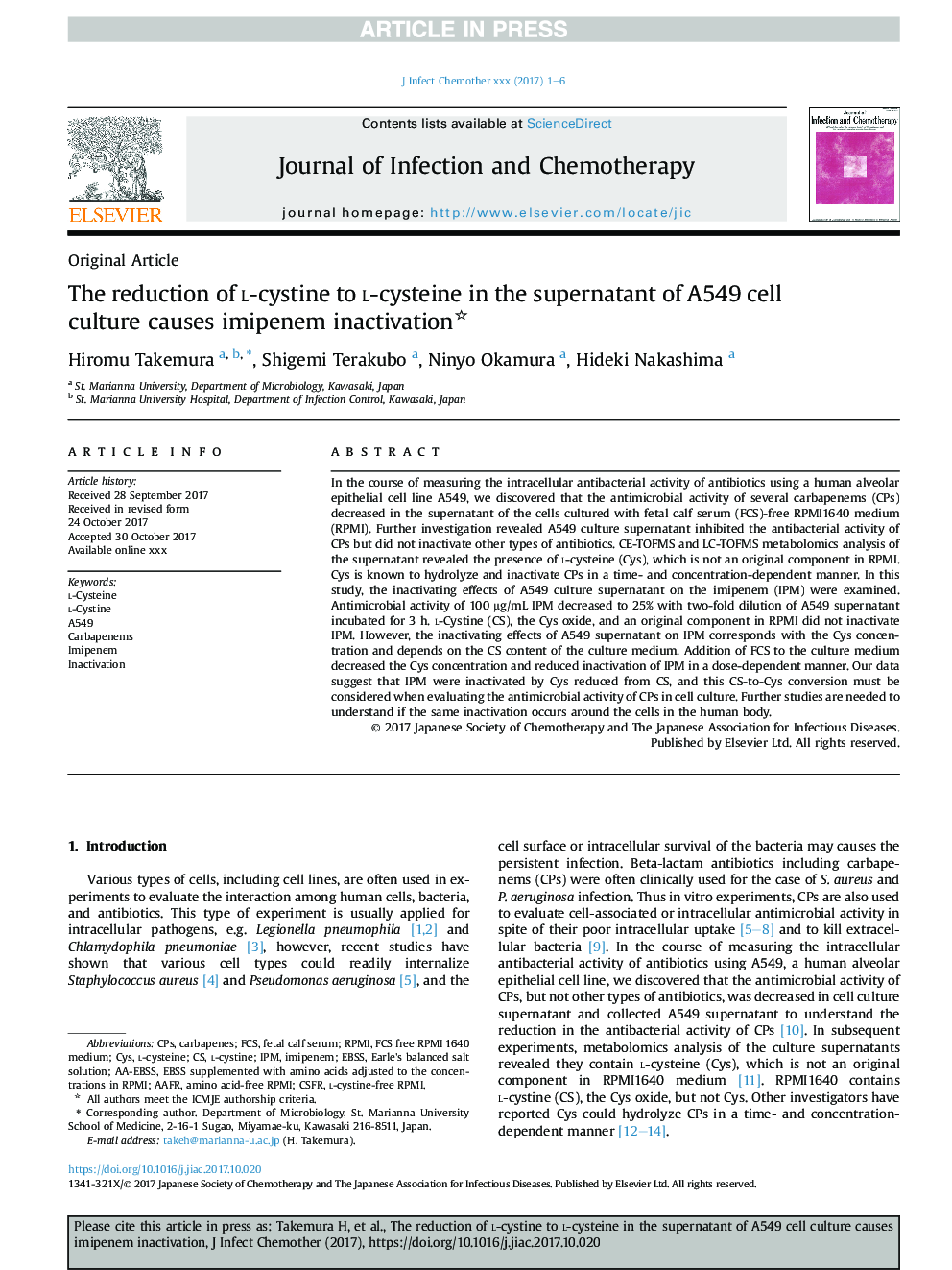| Article ID | Journal | Published Year | Pages | File Type |
|---|---|---|---|---|
| 8740649 | Journal of Infection and Chemotherapy | 2018 | 6 Pages |
Abstract
In the course of measuring the intracellular antibacterial activity of antibiotics using a human alveolar epithelial cell line A549, we discovered that the antimicrobial activity of several carbapenems (CPs) decreased in the supernatant of the cells cultured with fetal calf serum (FCS)-free RPMI1640 medium (RPMI). Further investigation revealed A549 culture supernatant inhibited the antibacterial activity of CPs but did not inactivate other types of antibiotics. CE-TOFMS and LC-TOFMS metabolomics analysis of the supernatant revealed the presence of l-cysteine (Cys), which is not an original component in RPMI. Cys is known to hydrolyze and inactivate CPs in a time- and concentration-dependent manner. In this study, the inactivating effects of A549 culture supernatant on the imipenem (IPM) were examined. Antimicrobial activity of 100 μg/mL IPM decreased to 25% with two-fold dilution of A549 supernatant incubated for 3 h. l-Cystine (CS), the Cys oxide, and an original component in RPMI did not inactivate IPM. However, the inactivating effects of A549 supernatant on IPM corresponds with the Cys concentration and depends on the CS content of the culture medium. Addition of FCS to the culture medium decreased the Cys concentration and reduced inactivation of IPM in a dose-dependent manner. Our data suggest that IPM were inactivated by Cys reduced from CS, and this CS-to-Cys conversion must be considered when evaluating the antimicrobial activity of CPs in cell culture. Further studies are needed to understand if the same inactivation occurs around the cells in the human body.
Keywords
Related Topics
Life Sciences
Immunology and Microbiology
Applied Microbiology and Biotechnology
Authors
Hiromu Takemura, Shigemi Terakubo, Ninyo Okamura, Hideki Nakashima,
